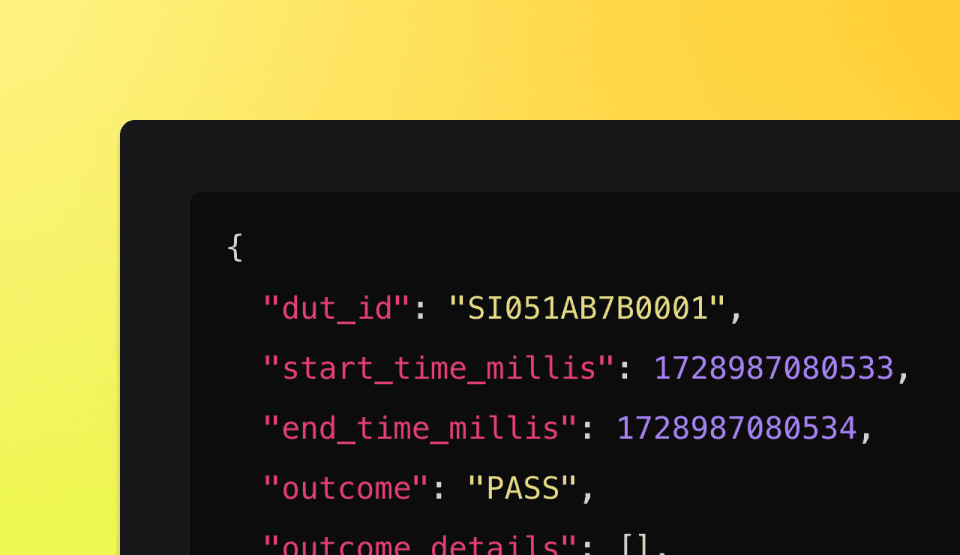Output Callbacks
Enable automatic test report generation in JSON or other formats.

Overview
Tracking tests is crucial for traceability and analysis, especially in production environments. OpenHTF uses output callbacks to automatically generate reports, with a default JSON format that can be customized as needed.
JSON
You can enable automatic test result export in the default JSON format.
main.py
from openhtf import Test, PhaseResult
from openhtf.output.callbacks import json_factory
def get_sn(test):
test.test_record.dut_id = 'SN1234'
return PhaseResult.CONTINUE
def main():
test = Test(get_sn)
# Exports results to JSON with pretty-printing
test.add_output_callbacks(json_factory.OutputToJSON("test_result.json", indent=2))
test.execute()
if __name__ == "__main__":
main()
A test_result.json file is created after execution and saved in the execution directory. The file path can be changed if needed. The general structure of an OpenHTF JSON log is as follows:
dut_id
start_time_millis
end_time_millis
outcome # PASS/FAIL
metadata
└── test_name
└── config
└── ...
phases # Array of test phases executed
└── name
└── outcome # PASS/FAIL
└── result # Phase-specific result details (e.g., CONTINUE)
└── measurements
log_records # Array of log messages
└── message
└── timestamp_millis
station_id
code_info # Details about the test script (name, source code)
Custom output format
You can implement a custom output format by creating a function to handle the test record and adding it as an output callback if the built-in format doesn’t meet your needs.
main.py
import openhtf as htf
def custom_output_callback(test_record):
with open("./custom_output.txt", "w") as f:
f.write("Custom Output\n")
f.write(f"DUT ID: {test_record.dut_id}\n")
f.write(f"Outcome: {test_record.outcome}\n")
for phase in test_record.phases:
f.write(f"Phase: {phase.name}\n")
def get_sn(test):
test.test_record.dut_id = "SN1234"
return htf.PhaseResult.CONTINUE
def main():
test = htf.Test(get_sn)
test.add_output_callbacks(custom_output_callback)
test.execute()
if __name__ == "__main__":
main()
The output file will then be:
custom_output.txt
Custom Output
DUT ID: SN1234
Outcome: Outcome.PASS
Phase: get_sn